On 9 May 2025, the Graça Machel Trust officially launched the South African chapter of New Faces, New Voices (NFNV) in Johannesburg. It marks a powerful new phase in the continental movement to reshape financial systems with and for women. Anchored by the Africa Women Financial Inclusion Initiative (AWFII), the chapter will champion systemic change in South Africa.
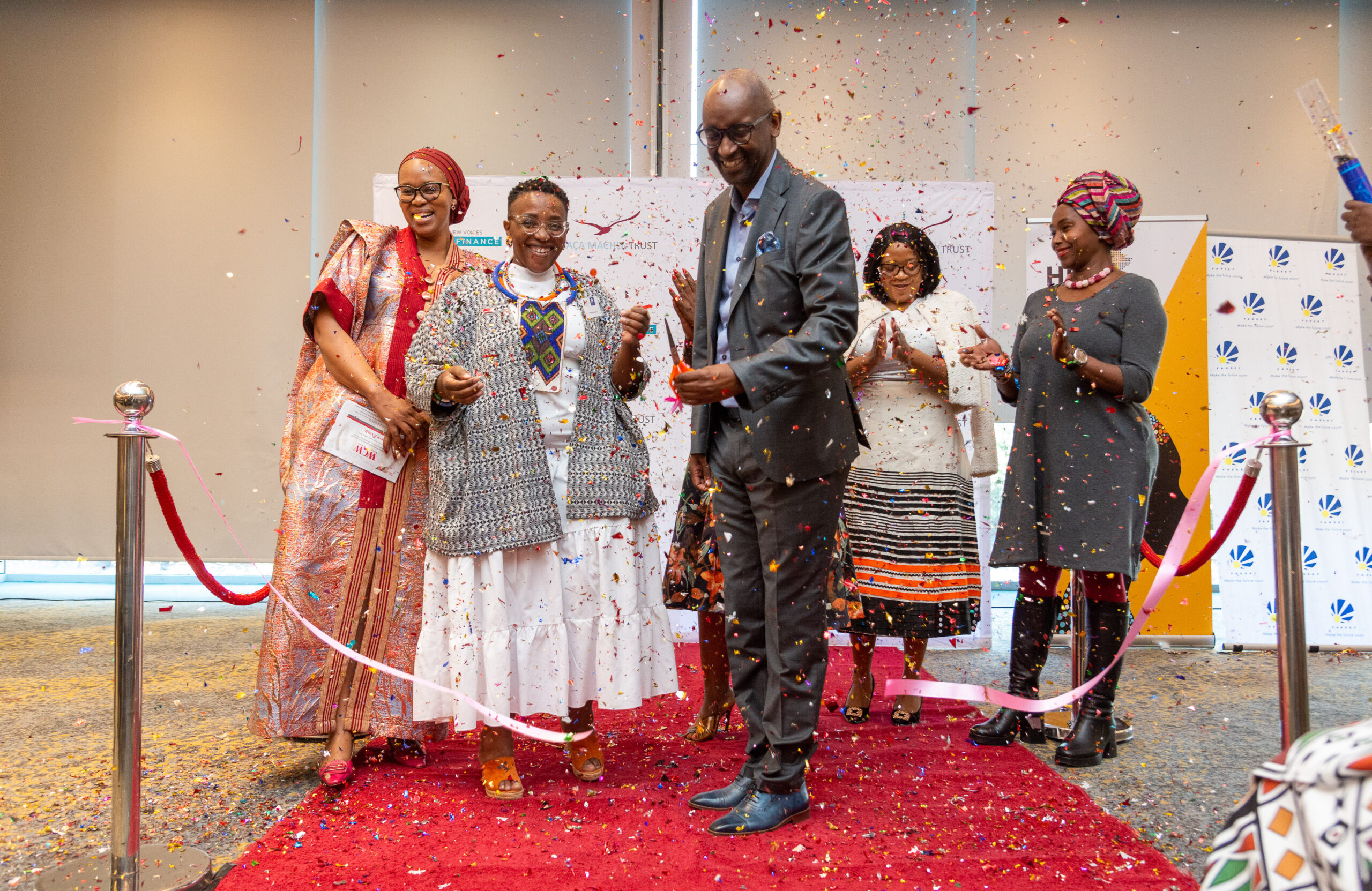
According to the World Bank, despite owning more than 38% of formal micro, small, and medium enterprises, South African women access less than 10% of commercial financing[1]. Only 32% of executive positions in financial services are held by women[2]. These disparities reveal the structural barriers that continue to exclude women from fully participating in and leading the financial sector.
The NFNV South Africa chapter joins a pan-African network that works to expand women’s influence in financial decision-making, leadership, and access to capital. The chapter’s mission is clear: enable structural reform, support women entrepreneurs, and close the funding gap.
Putting women at the centre of economic transformation
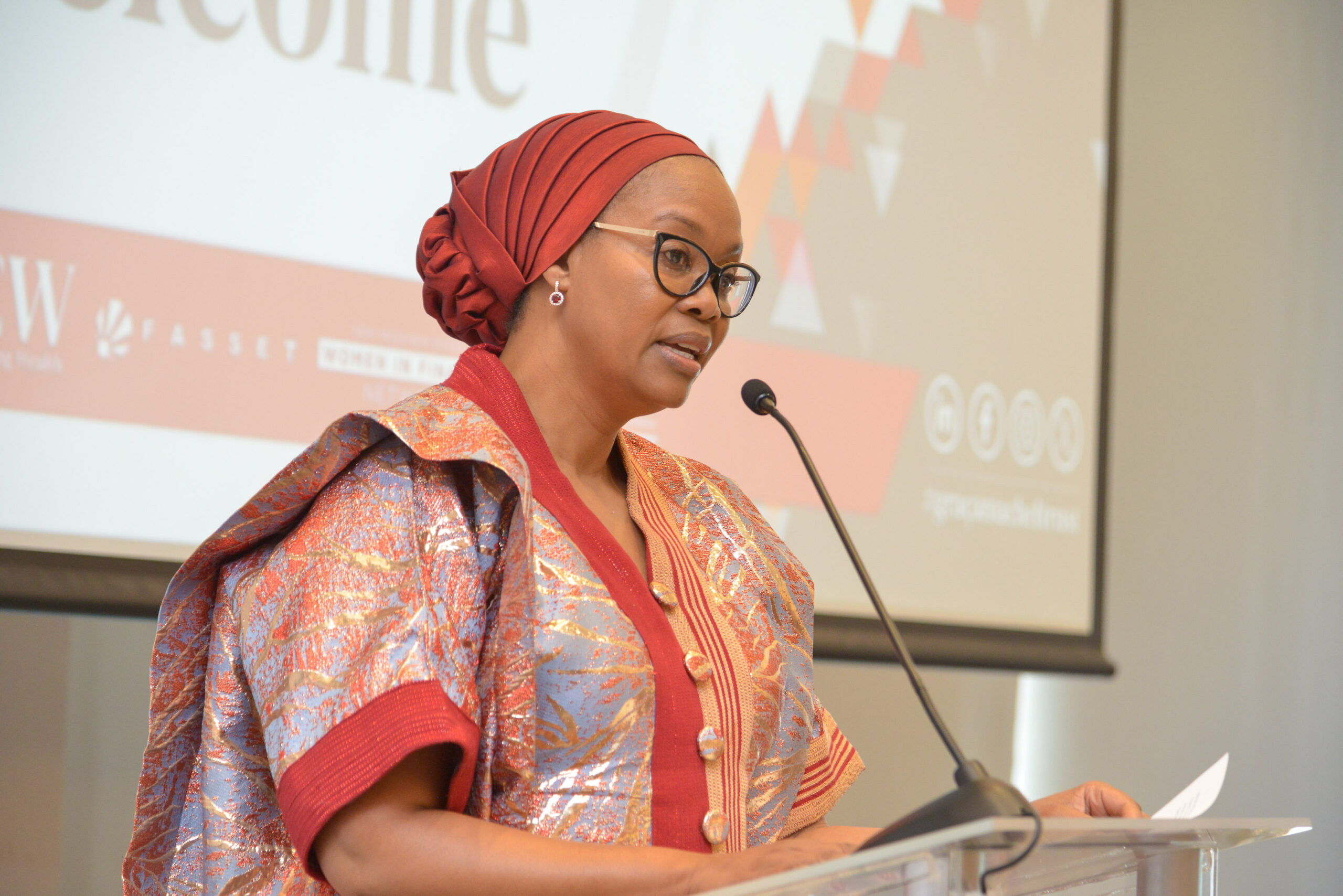
Shiphra Chisha, the Trust’s Director of Programmes, shared insights on why the Trust is committed to advancing women. “African women are at the heart of the continent’s transformation. Women drive Africa’s socioeconomic growth, from families to boardrooms and marketplaces. Our 360° model capacitates entrepreneurs, enables access to capital, opens markets, and pushes for policy reform that reflects women’s realities.”
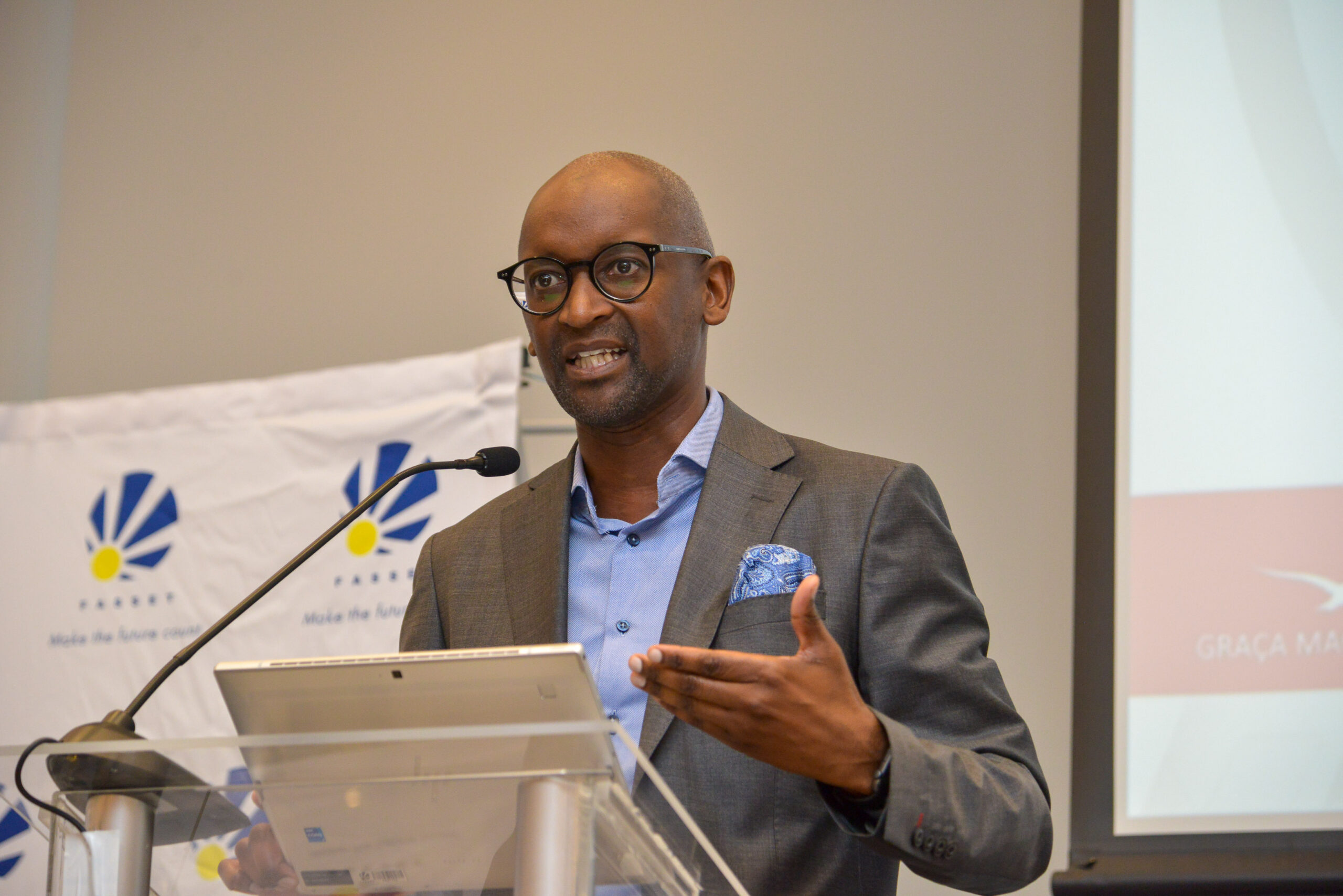
Makabongwe Siziba, Acting CEO, FASSET.
Makabongwe Siziba, Acting CEO of the Finance and Accounting Services Sector Education and Training Authority (FASSET), welcomed the NFNV launch as a critical step in advancing women’s leadership within the financial sector. ‘We are proud to collaborate with initiatives like New Faces New Voices that champion financial inclusion and leadership for women,’ he said. Siziba also highlighted the urgent need to equip women—particularly those in marginalised communities—with the skills and opportunities they need to succeed.”
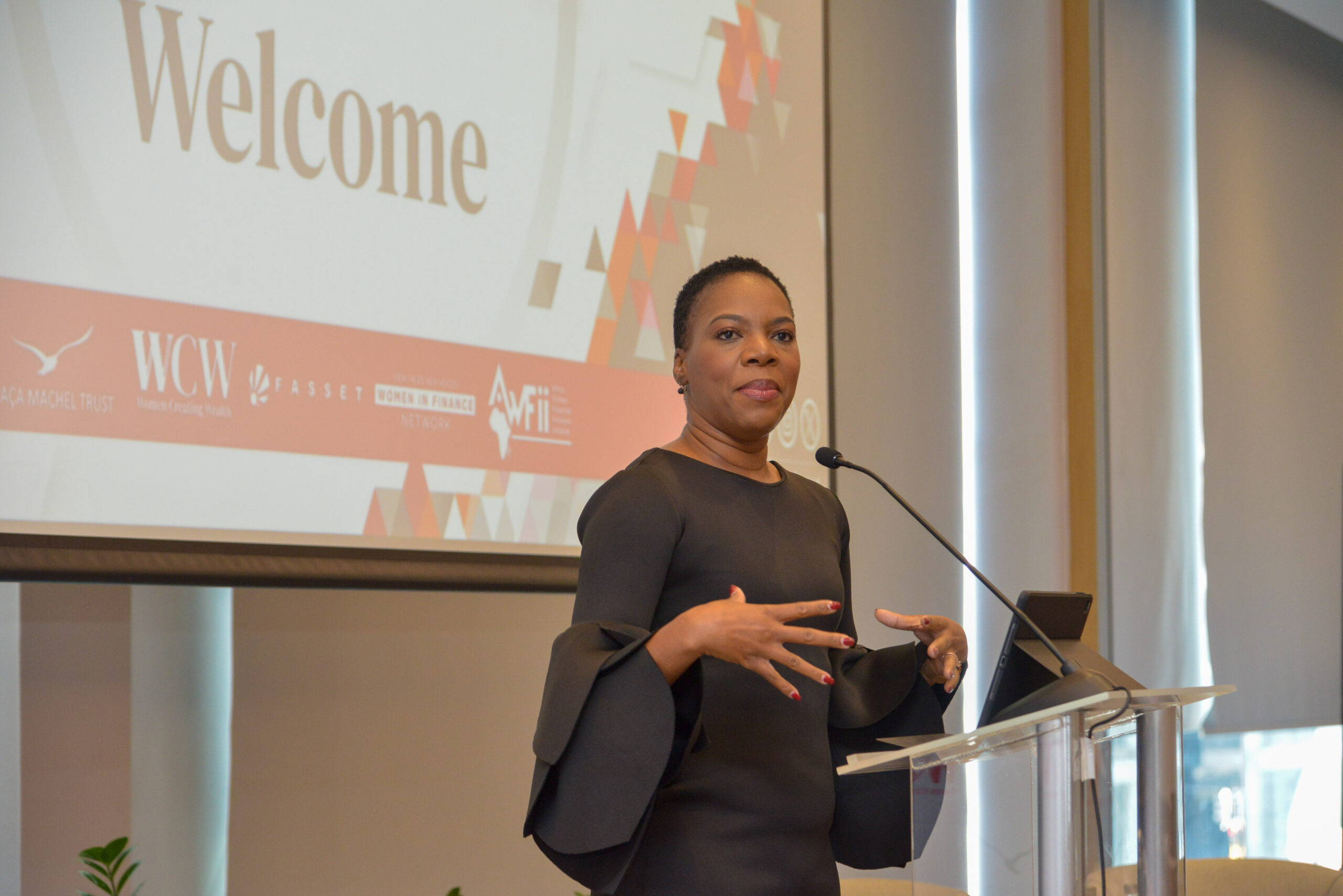
Honourable Nobuntuza Webster, Member of Parliament in South Africa’s National Assembly
Government participation is critical to long-term impact. Honourable Nobuntuza Webster, Member of Parliament in South Africa’s National Assembly, distinguished between symbolic inclusion and genuine advancement: “Ownership is where the real power lies. Inclusion without ownership is tokenism.” She highlighted the gap between the government’s 40% procurement target and the 6% achieved in 2022 and called for gender-specific targets and accountability mechanisms to enable meaningful economic participation for women.
During the launch, AWFII hosted a dialogue session featuring two entrepreneurs whose stories underscored the persistence of systemic barriers.

Auxilia Maomela, Founder of Imizamoyethu Trading Enterprise, reflected on her 25-year journey: “Each ‘upskilling’ programme ends, and contracts go to the same large suppliers. Where’s the space for SMEs like mine?”
Viwe Ntini, CEO of Sande Capital, transitioned from corporate finance to grassroots financial literacy: “Financial conversations should not begin when you’re 40. They belong in school, raising a generation fluent in economic language from day one.”
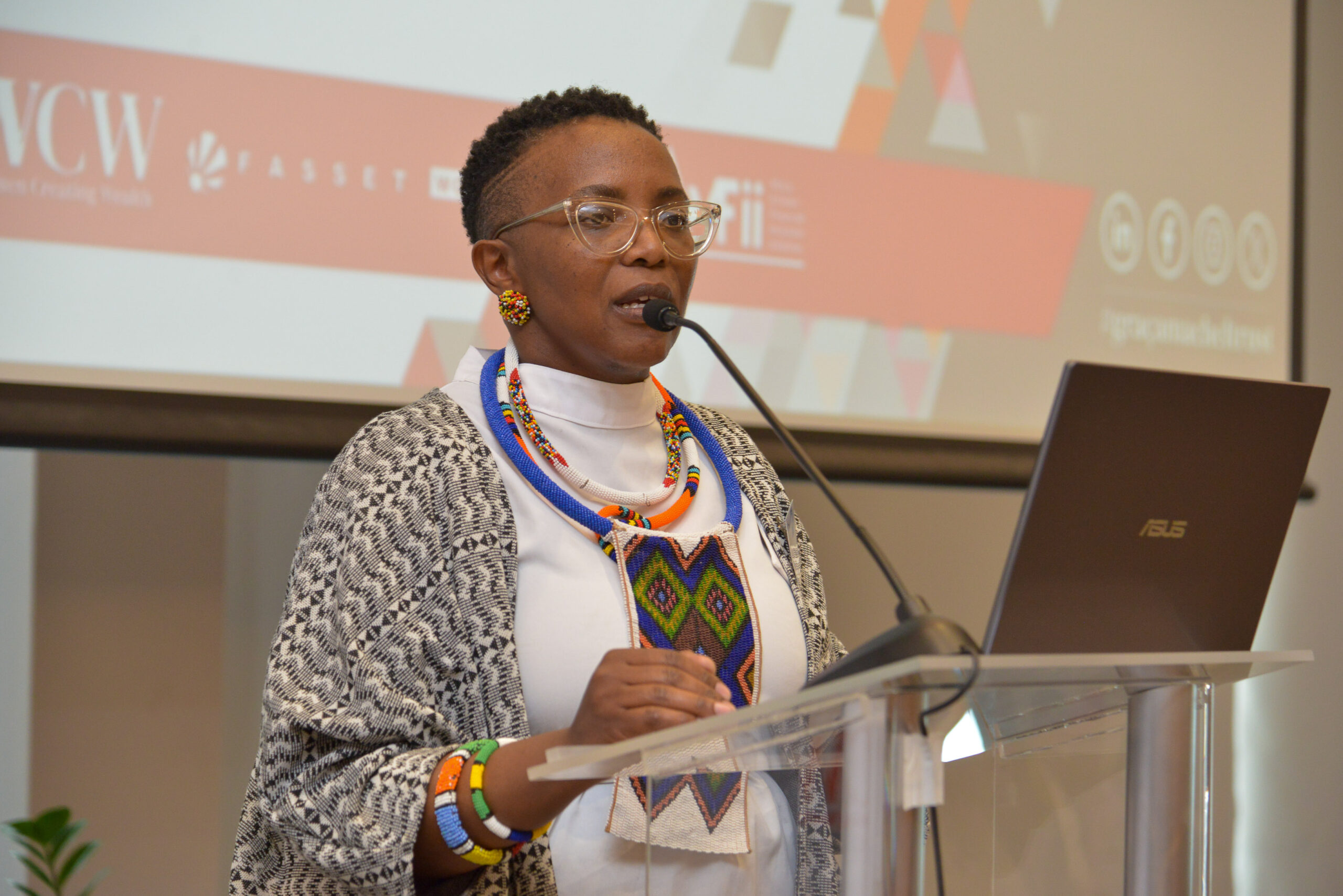
Zimkhitha Gova, Executive Chair of AWFII, positioned the launch of NFNV in South Africa as a strategic milestone: “NFNV-SA is not just symbolic. It’s a shared commitment to redesign financial systems with women at the centre. It’s our call to action—uniting government, financiers, entrepreneurs, and civil society.”
Since its inception in 2009, NFNV has advanced women’s financial inclusion and leadership in 18 African countries. The South African chapter aims to reach 10,000 women with targeted financial literacy tools, cooperative banking platforms, and mentorship networks.
The launch of NFNV South Africa is not just a celebration but a mandate for transformation. With women’s economic agency recognised as essential to Africa’s development, this initiative calls on all actors to co-create systems where women do not just participate—they lead.
References
[1] https://documents1.worldbank.org/curated/en/637861468104635067/pdf/402630ZA0Access0to0finance01PUBLIC1.pdf
[2] https://www.thinkwithgoogle.com/intl/en-emea/future-of-marketing/management-and-culture/women-empowerment/#:~:text=In%20South%20Africa%2C%20only%20four,2016%20to%2040%20in%202019.










 The Trust supports and mobilises civil society networks on issues of ending child marriage, ending violence against children, ending female genital mutilation and promoting children’s rights, to carry out advocacy and action across Africa. Special focus is placed on Malawi, Mozambique, Tanzania and Zambia where child marriage continues to be a problem largely driven by poverty, gender inequality, harmful traditional practices, conflict, low levels of literacy, limited opportunities for girls and weak or non-existent protective and preventive legal frameworks.
The Trust supports and mobilises civil society networks on issues of ending child marriage, ending violence against children, ending female genital mutilation and promoting children’s rights, to carry out advocacy and action across Africa. Special focus is placed on Malawi, Mozambique, Tanzania and Zambia where child marriage continues to be a problem largely driven by poverty, gender inequality, harmful traditional practices, conflict, low levels of literacy, limited opportunities for girls and weak or non-existent protective and preventive legal frameworks.




 Education is a fundamental right for all children, which is also a vehicle for social, economic and political transformation in communities, countries and the African continent at large. Recent studies indicate a lack of progress in some of the critical commitments aimed at improving education quality, access, retention and achievement, particularly for girls. In most African countries, girls may face barriers to learning, especially when they reach post-primary levels of education. By implementing multi-dimensional approaches to education which includes core education, personal development, life skills and economic competencies, the Trust partners with funding partners, governments, civil societies and the private sector to improve education access.
Education is a fundamental right for all children, which is also a vehicle for social, economic and political transformation in communities, countries and the African continent at large. Recent studies indicate a lack of progress in some of the critical commitments aimed at improving education quality, access, retention and achievement, particularly for girls. In most African countries, girls may face barriers to learning, especially when they reach post-primary levels of education. By implementing multi-dimensional approaches to education which includes core education, personal development, life skills and economic competencies, the Trust partners with funding partners, governments, civil societies and the private sector to improve education access.

 The Nutrition and Reproductive, Maternal, New-born, Child and Adolescent Health and Nutrition, (RMNCAH+N) of the Children’s Rights and Development Programme aims at promoting the Global Strategy for women, children and adolescents’ health within the Sustainable Development Goals (SDG) agenda. The strategy emphasises on the importance of effective country leadership as a common factor across countries making progress in improving the health of women, children and adolescents.
The Nutrition and Reproductive, Maternal, New-born, Child and Adolescent Health and Nutrition, (RMNCAH+N) of the Children’s Rights and Development Programme aims at promoting the Global Strategy for women, children and adolescents’ health within the Sustainable Development Goals (SDG) agenda. The strategy emphasises on the importance of effective country leadership as a common factor across countries making progress in improving the health of women, children and adolescents. Through its Early Childhood Development (ECD) plan, The Trust will seek to put into action the new science and evidence Report that was presented by Lancet Series on Good and early development – the right of every child. This will be achieved by mobilising like-minded partners to contribute in the new science and evidence to reach all young children with ECD. The Trust’s goal is to be a catalyst for doing things differently, in particular, to rid fragmentation and lack of coordination across ECD sectors. In response to evidence showing the importance of political will in turning the tide against the current poor access and quality of ECD. Even before conception, starting with a mother’s health and social economic conditions, the early years of a child’s life form a fundamental foundation that determines whether a child will survive and thrive optimally.
Through its Early Childhood Development (ECD) plan, The Trust will seek to put into action the new science and evidence Report that was presented by Lancet Series on Good and early development – the right of every child. This will be achieved by mobilising like-minded partners to contribute in the new science and evidence to reach all young children with ECD. The Trust’s goal is to be a catalyst for doing things differently, in particular, to rid fragmentation and lack of coordination across ECD sectors. In response to evidence showing the importance of political will in turning the tide against the current poor access and quality of ECD. Even before conception, starting with a mother’s health and social economic conditions, the early years of a child’s life form a fundamental foundation that determines whether a child will survive and thrive optimally.